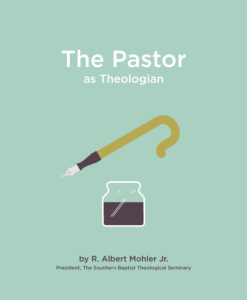The Pastor as Theologian — Part 1
The transformation of theology into an academic discipline more associated with the university than the church has been one of the most lamentable developments of the last several centuries. In the earliest eras of the church, and through the annals of Christian history, the central theologians of the church were its pastors. This was…
The transformation of theology into an academic discipline more associated with the university than the church has been one of the most lamentable developments of the last several centuries. In the earliest eras of the church, and through the annals of Christian history, the central theologians of the church were its pastors. This was certainly true of the great Reformation of the sixteenth century as well. From the patristic era, we associate the discipline and stewardship of theology with names such as Athanasius, Irenaeus and Augustine. Similarly, the great theologians of the Reformation were, in the main, pastors such as John Calvin and Martin Luther. Of course, their responsibilities often ranged beyond those of the average pastor, but they could not have conceived of the pastoral role without the essential stewardship of theology.
The emergence of theology as an academic discipline coincides with the development of the modern university. Of course, theology was one of the three major disciplines taught in the medieval university. Yet, so long as the medieval synthesis was intact, the university was always understood to be in direct service to the church and its pastors.
The rise of the modern research university led to the development of theology as merely one academic discipline among others — and eventually to the redefinition of theology as “religious studies” separated from ecclesiastical control or concern. In most universities, the secularization of the academy has meant that the academic discipline of theology has no inherent connection to Christianity, much less to its central truth claims.
These developments have caused great harm to the church, separating ministries from theology, preaching from doctrine and Christian care from conviction. In far too many cases, the pastor’s ministry has been evacuated of serious doctrinal content and many pastors seem to have little connection to any sense of theological vocation.
All this must be reversed if the church is to remain true to God’s Word and the Gospel. Unless the pastor functions as a theologian, theology is left in the hands of those who, in many cases, have little or no connection or commitment to the local church.
_____________

You can download the complete PDF of The Pastor as Theologian for Free here.
“Every pastor is called to be a theologian. This may come as a surprise to some pastors, who see theology as an academic discipline taken during seminary rather than as an ongoing and central part of the pastoral calling. Nevertheless, the health of the church depends upon its pastors functioning as faithful theologians — teaching, preaching, defending and applying the great doctrines of the faith.”
—R. Albert Mohler Jr.


